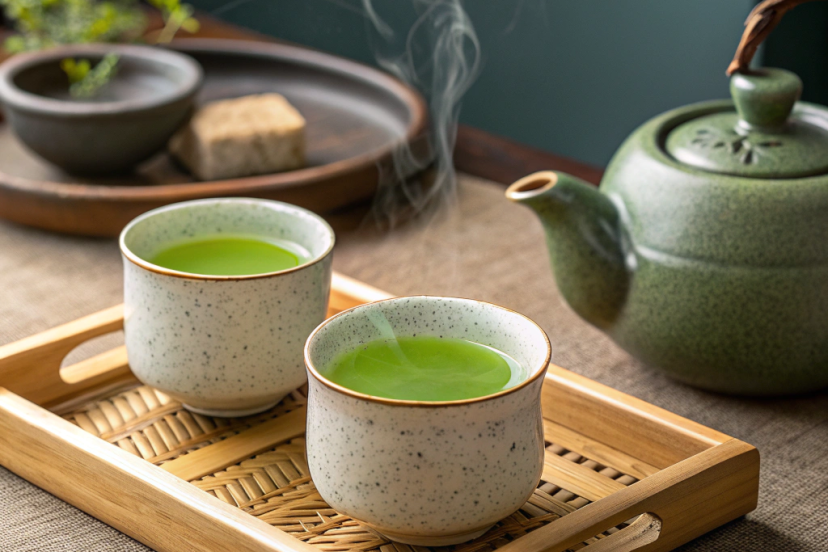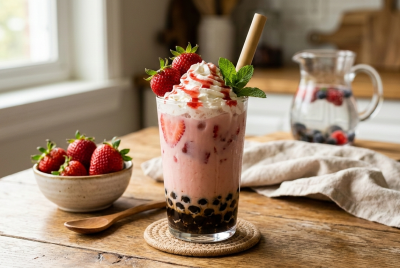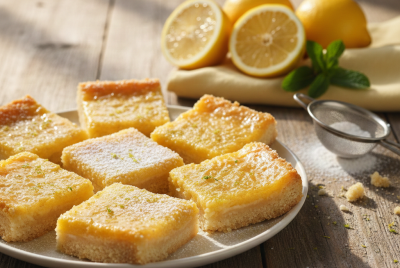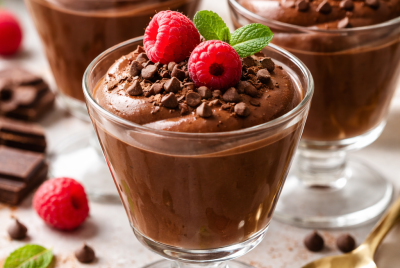From Japan to Your Mug: The Best Green Teas You Need to Try
Green tea isn’t just a drink. It’s a ritual. It’s wellness in a cup. And for me, it’s become a daily habit that energizes my mornings, clears my mind, and even helps me wind down at night. The best green tea doesn’t just taste amazing—it nourishes your body from the inside out.
In this article, I’ll walk you through the top Japanese green teas you need to try, along with green tea benefits backed by science, tasty green tea recipes, potential green tea side effects, and why organic green tea in all its forms—green tea leaves, green tea bags, or matcha powder—deserves a place in your pantry.
Let’s explore the rich world of Japanese green tea and discover what makes it so powerful, soothing, and life-enhancing.
Ready to brew? Let your mug travel to Japan today.
Why Japanese Green Tea Is So Unique
Japanese green tea is steam-processed to preserve its natural compounds, including polyphenols like EGCG (epigallocatechin gallate). This is what gives green tea its unique bitter-sweet flavor and health-boosting powers.
The focus here is on green leaf tea—fresh, fragrant, and full of antioxidants. Japan’s tea-growing regions like Uji, Shizuoka, and Kagoshima are known worldwide for producing the best green tea varieties.

Matcha – The Ultimate Antioxidant Powerhouse
Matcha is made by stone-grinding shade-grown green tea leaves into a fine powder. You’re consuming the entire leaf, meaning you get 10x more antioxidants than regular brewed tea (Weiss et al., 2003).
- Origin: Uji, Japan
- Health Benefits: Energy, detox, focus, antioxidants
- For Whom: Busy professionals, students, athletes
- Forms: Powder (ceremonial or culinary grade)
- Side Effects: High in caffeine—avoid excess or drinking late at night
Recipe: Traditional Matcha
- 1 tsp matcha powder
- 2 oz hot water (not boiling!)
- Whisk vigorously in a zig-zag motion until frothy
💡 Tip: Use a bamboo whisk (chasen) for best results. Opt for organic green tea to avoid pesticide residues.
For busy folks (like most of us), matcha is also available as tea bags! Check it out!
Gyokuro – The Luxury Tea for Heart & Mind
Gyokuro is shaded for 3 weeks before harvest, producing high L-theanine levels—a compound that boosts alpha brain waves (Juneja et al., 1999). It’s incredibly calming while keeping you alert.
- Origin: Yame and Uji regions
- Health Benefits: Stress relief, heart health, high antioxidants
- For Whom: Professionals, older adults, anyone seeking calm energy
- Forms: Loose green tea leaves
- Side Effects: Strong umami taste might not appeal to all
Recipe: Cold-Brewed Gyokuro
- 1 tbsp gyokuro green tea leaves
- 8 oz cold filtered water
- Steep in fridge 6–8 hours
💡 Tip: Drink slowly to appreciate its umami flavor.
Sencha – The Everyday Wellness Brew
Sencha green tea is the most common Japanese green tea. A 2016 study by Yang et al. showed regular consumption supports immune function and fat oxidation.
- Origin: Shizuoka Prefecture
- Health Benefits: Immunity, daily health, metabolism
- For Whom: Everyone!
- Forms: Loose green tea leaves, green tea bags
- Side Effects: Some stomach sensitivity on empty stomach
Recipe: Classic Hot Sencha
- 1 tsp sencha leaves
- 6 oz hot water (70–80°C)
- Steep 1–2 minutes
💡 Tip: Avoid oversteeping—it gets bitter.
Kabusecha – For Glowing Skin and Calm Focus
Shaded for about 10 days, Kabusecha combines sencha’s freshness with gyokuro’s umami. It’s high in catechins and L-theanine, both linked to mood enhancement (Nobre et al., 2008).
- Origin: Kagoshima and Uji
- Health Benefits: Skin health, calm energy, mood regulation
- For Whom: Skincare enthusiasts, creatives, introverts
- Forms: Loose green tea leaves
- Side Effects: Minimal; contains moderate caffeine
Recipe: Kabusecha Glow Tonic
- Brew kabusecha normally
- Add a splash of lemon and raw honey
💡 Tip: Drink mid-morning for sustained calm energy.
Genmaicha – The Gentle Gut Soother
Genmaicha combines green tea and roasted brown rice. A comforting, nutty tea that’s easy on the belly and perfect during fasts or detox phases.
- Origin: All over Japan
- Health Benefits: Digestion, mild detox, weight management
- For Whom: Sensitive stomachs, beginners, intermittent fasters
- Forms: Tea bags, loose leaves
- Side Effects: Very mild caffeine
Recipe: Breakfast Genmaicha Latte
- Steep 1 tsp genmaicha in 6 oz water
- Add warm almond milk and a pinch of cinnamon
💡 Tip: It’s a great afternoon tea to curb snacking.
Hojicha – Your Sleep-Safe Sipper
Roasted over charcoal, Hojicha has a smoky, earthy flavor. It’s virtually caffeine-free and aids digestion.
- Origin: Kyoto
- Health Benefits: Gut health, sleep, relaxation
- For Whom: Caffeine-sensitive, children, evening tea lovers
- Forms: Tea bags, loose tea
- Side Effects: Minimal, very low caffeine
Recipe: Hojicha Moon Milk
- Brew hojicha
- Add frothed oat milk, a dash of nutmeg and vanilla
💡 Tip: Ideal post-dinner ritual tea.
Kukicha – The Mineral-Rich Twig Tea
Made from tea twigs and stems, Kukicha is high in calcium, magnesium, and fluoride. It’s alkalizing and very mild.
- Origin: Kyoto and Shizuoka
- Health Benefits: Bone strength, alkalizing, hydration
- For Whom: Kids, seniors, alkaline diet followers
- Forms: Twig tea, loose form
- Side Effects: None
Recipe: Kukicha Citrus Iced Tea
- Steep kukicha and chill
- Add orange slices and mint
💡 Tip: Drink during hot weather to stay hydrated and mineral-balanced.
Mecha – The Bold Detoxifier
Made from young tea buds, Mecha is strong and refreshing. Its high catechin content makes it a detox champion.
- Origin: Shizuoka
- Health Benefits: Appetite control, detox, palate cleansing
- For Whom: Dieters, foodies
- Forms: Loose buds
- Side Effects: May be astringent
Recipe: Mecha Mint Cooler
- Brew mecha normally
- Add fresh mint and lime juice
💡 Tip: Best enjoyed after meals to aid digestion.
Green Tea Side Effects to Know
While green tea benefits are impressive, it’s good to know the side effects:
- Can cause stomach upset on an empty stomach
- May interfere with iron absorption (drink between meals)
- Matcha and gyokuro may overstimulate if consumed in excess
💡 Tip: Stick to 2–3 cups per day unless otherwise advised.
Final Thoughts: The Best Green Tea for You
Choosing the best green tea depends on your goals:
- For energy and clarity: Matcha
- For immunity and daily wellness: Sencha
- For sleep and digestion: Hojicha or Genmaicha
- For glowing skin and mood: Kabusecha
- For detox and fat burn: Mecha
Explore green tea leaves, green tea powder and green tea bags to find your ideal style.
💡 Tip: Want Maximum Health Benefits?
Invest in high-quality organic green teas from regions like Uji, Kagoshima, or Shizuoka. These regions are renowned for nutrient-rich soil and pristine cultivation.
Read also: Soursop Leaf Tea: A Natural Elixir for Health and Wellness
FAQs
1. What are the benefits of drinking green tea?
Green tea is loaded with antioxidants that support energy, metabolism, brain health, and detox. It’s like a gentle daily reset for your body and mind!
2. Is green tea ok to drink every day?
Yes, totally! Drinking green tea daily is safe for most people and may offer long-term health perks like better focus, digestion, and heart support.
3. What is the best time to drink green tea?
Mid-morning or early afternoon is ideal—after meals and before the caffeine crash. It keeps you alert without overloading your system.
4. Can I drink green tea on an empty stomach?
It’s best not to! Green tea on an empty stomach can cause nausea or acidity for some people. I recommend you grab a light bite first!
5. Can I drink green tea before bed?
Only if it’s a low-caffeine option like Hojicha—otherwise, the caffeine in green tea might mess with your sleep.
6. Can green tea reduce belly fat?
Studies suggest EGCG may help with fat oxidation (Hursel et al., 2011). Green tea, especially Matcha and Sencha, may help boost metabolism and fat-burning. But it should be paired with a healthy lifestyle!
7. Which tea is best for a flat tummy?
Matcha, Mecha, and Sencha are great picks! They help with digestion, detox, and appetite control, making that bloat disappear.
8. Is green tea good for skin?
Yes, the antioxidants in green tea fight inflammation and help your skin stay clear, calm, and youthful.
9. Is green tea good for females?
Yes, green tea supports hormonal balance, metabolism, and even skin clarity. It’s a fantastic wellness drink for women at any stage.
10. Should I rub green tea on my face?
It’s totally safe—and even beneficial to rub green tea on your face! Applying green tea (or using products with it) can reduce acne, soothe redness, and give your skin a natural glow. Cooled brewed tea can also be used as a toner.
11. Which tea gives glowing skin?
Try Kabusecha or Gyokuro—they’re antioxidant-rich and promote skin hydration and radiance from the inside out.
12. Is green tea good for hair?
Yes, polyphenols and vitamins may reduce hair loss, support growth, boost scalp circulation, and help keep your strands strong and shiny. Sip your green tea or use it as a rinse!
Sources:
- Weiss DJ, Anderton CR. “Determination of Catechins in Matcha Green Tea.” J Chromatogr A. 2003.
- Juneja LR et al. “L-theanine – A Unique Amino Acid of Green Tea.” Trends in Food Science & Technology. 1999.
- Nobre AC et al. “L-theanine, a Natural Constituent in Tea, and Its Effect on Mental State.” Asia Pac J Clin Nutr. 2008.
- Hursel R et al. “Catechin- and Caffeine-Rich Teas for Control of Body Weight.” Obes Rev. 2011.
- Yang CS et al. “Cancer prevention by tea: animal studies, molecular mechanisms and human relevance.” Nat Rev Cancer. 2006.












